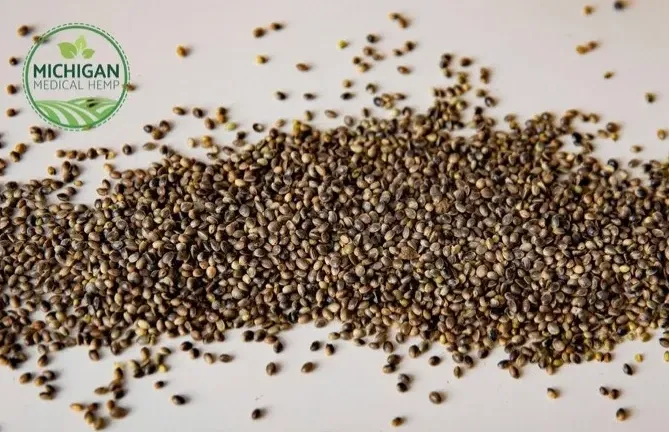Our hemp seeds are a great source of nutrients, including essential fatty acids and protein. When it comes to the plant itself, having a strong structure is important for its ability to support its weight and resist damage from wind, rain, and other environmental factors. A strong structure also supports the development of dense, resinous flowers that are rich in cannabinoids and terpenes.
In addition to a strong structure, a great terpene and cannabinoid profile is also important for hemp plants. Terpenes are aromatic compounds that give hemp its distinctive aroma, while cannabinoids are the compounds that provide its therapeutic effects. A diverse and potent terpene and cannabinoid profile can result in a more flavorful and effective hemp product.
Finally, a vigorous root structure is essential for the plant’s ability to absorb water and nutrients from the soil. A healthy root system can also help protect the plant from disease and environmental stressors. Overall, a combination of these factors can contribute to the overall health and potency of hemp plants.
The hemp plant has a taproot system, which means it has a single, main root that grows deep into the soil. This taproot can grow up to several feet deep, allowing the plant to access nutrients and water from deeper soil layers.
In addition to its taproot, hemp also has lateral roots that extend horizontally from the main root. These lateral roots can spread out several feet from the plant, helping it to anchor itself in the soil and absorb nutrients from a larger area. This root system also helps to prevent erosion and improve soil health by promoting soil aeration and water retention.
The strong and extensive root system of hemp makes it a resilient and adaptable plant that can grow in a variety of soil conditions, including poor or compacted soil. It also makes hemp an excellent crop for phytoremediation, which is the process of using plants to remove pollutants from the soil. Overall, the vigorous root system of hemp is an important characteristic that contributes to its ability to thrive in diverse environments and its potential for use in sustainable agriculture and environmental remediation.
When it comes to genetically stable seeds, this refers to seeds that have a consistent genetic makeup from generation to generation. This is important for hemp farmers because it ensures that the plants grown from these seeds will have the same desirable traits and characteristics as the parent plant.
To achieve genetically stable hemp seeds, it is important to use high-quality parent plants with desirable traits, and to carefully control the pollination process to ensure that the resulting seeds are true to the parent plant. This can involve using techniques such as selective breeding or genetic engineering to create plants with specific traits.
In general, genetically stable hemp seeds are considered to be an important factor in the success of a hemp crop, as they help to ensure that the resulting plants are consistent and reliable, with the desired characteristics for industrial use.
When it comes to genetically stable seeds, this refers to seeds that have a consistent genetic makeup from generation to generation. This is important for hemp farmers because it ensures that the plants grown from these seeds will have the same desirable traits and characteristics as the parent plant.
To achieve genetically stable hemp seeds, it is important to use high-quality parent plants with desirable traits, and to carefully control the pollination process to ensure that the resulting seeds are true to the parent plant. This can involve using techniques such as selective breeding or genetic engineering to create plants with specific traits.
In general, genetically stable hemp seeds are considered to be an important factor in the success of a hemp crop, as they help to ensure that the resulting plants are consistent and reliable, with the desired characteristics for industrial use.
The phenotype attributes of hemp can vary depending on the specific strain or cultivar, as well as environmental factors such as soil quality, temperature, and light conditions.
Some common phenotype attributes of hemp include:
– Height: Hemp plants can range from a few feet to over ten feet tall, depending on the cultivar and growing conditions.
– Stem diameter: Hemp plants typically have a thick, fibrous stem that can vary in diameter depending on the cultivar.
– Leaf shape: Hemp leaves are typically palmate or compound, with multiple leaflets.
– Flowering time: The time it takes for hemp plants to flower can vary depending on the cultivar and environmental conditions.
– Flower color: Hemp flowers can be various shades of green, yellow, brown, or purple, depending on the cultivar.
– CBD content: CBD is a non-intoxicating cannabinoid found in hemp plants, and the amount of CBD in a given strain can vary depending on the cultivar and growing conditions.
– THC content: THC is the psychoactive cannabinoid found in marijuana, and hemp plants are legally required to contain less than 0.3% THC by dry weight in order to be classified as hemp.
Overall, the phenotype attributes of hemp can vary widely depending on a variety of factors, but hemp plants are generally characterized by their tall, fibrous stems, palmate or compound leaves, and non-intoxicating CBD content.
Our team of farming experts and scientists have carefully crafted the genetics behind our hemp seed. The stability, strength structurally, superior phenotypical attributes, wonderful terpene profile and finally a strong & vigorous root structure are elements which our farmers experience and have come to value while successfully growing our hemp seed in their fields. Contact us today at 866-253-6733 to learn how you can take advantage of our hemp seed genetics for your next planting season.

